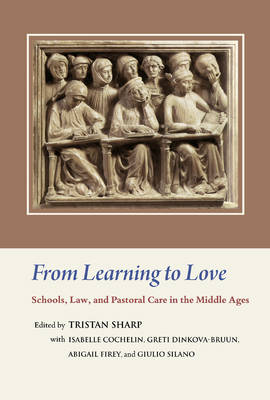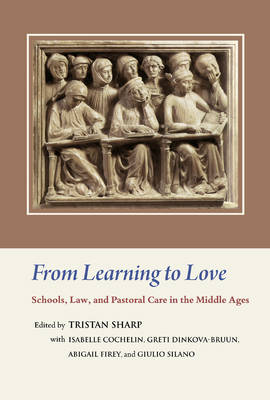
- Afhalen na 1 uur in een winkel met voorraad
- Gratis thuislevering in België vanaf € 30
- Ruim aanbod met 7 miljoen producten
- Afhalen na 1 uur in een winkel met voorraad
- Gratis thuislevering in België vanaf € 30
- Ruim aanbod met 7 miljoen producten
From Learning to Love: Schools, Law, and Pastoral Care in the Middle Ages
Essays in Honour of Joseph W. Goering
Tristan SharpOmschrijving
The essays in this volume show how the teaching of law and theology in the medieval schools was part of a pastoral project to foster a just Christian society and to lead souls to contemplation of God. With subjects ranging from scholastic debates about divine simplicity to disputes between parishioners over their reputations, these studies take us across Europe, from the eleventh to the fifteenth centuries, although the heart of the volume covers England and northern France in the decades around 1200.
The collection reveals a culture with many threads of mutual influence connecting the learning of the schools, the administration of the Church, the perspectives of professionals in law and theology, and the stories, practices, and devotion of the laity. The first section of the volume considers medieval masters and examines both their subjects of intellectual inquiry and their pedagogical methods, as reflected in the particular textual and manuscript practices developed in the schools. The second section considers how clerics applied learning acquired in the schools in their roles as pastors, judges, and administrators. The final section gathers essays on those aspects of religious culture manifested in popular piety, liturgy, and hagiography.
Diverse in methods and scope, these essays nevertheless share a common aim: to honour the remarkable scholarly achievement of Joseph Ward Goering. Although best known for his work on scholastic theology and pastoralia, his interests have ranged from hagiography to visual culture, and this volume reflects the interdisciplinary breadth and coherence of his work. This book presents original studies from many fields, including history, law, language and literature, theology, philosophy, and musicology, along with some editions of hitherto unpublished texts, as a tribute to Joe's role as a beloved mentor to medievalists from many disciplines.
Specificaties
Betrokkenen
- Auteur(s):
- Uitgeverij:
Inhoud
- Aantal bladzijden:
- 824
- Taal:
- Engels
- Reeks:
- Reeksnummer:
- nr. 29
Eigenschappen
- Productcode (EAN):
- 9780888448293
- Verschijningsdatum:
- 30/09/2017
- Uitvoering:
- Hardcover
- Formaat:
- Genaaid
- Afmetingen:
- 160 mm x 236 mm
- Gewicht:
- 1519 g

Alleen bij Standaard Boekhandel
Beoordelingen
We publiceren alleen reviews die voldoen aan de voorwaarden voor reviews. Bekijk onze voorwaarden voor reviews.











